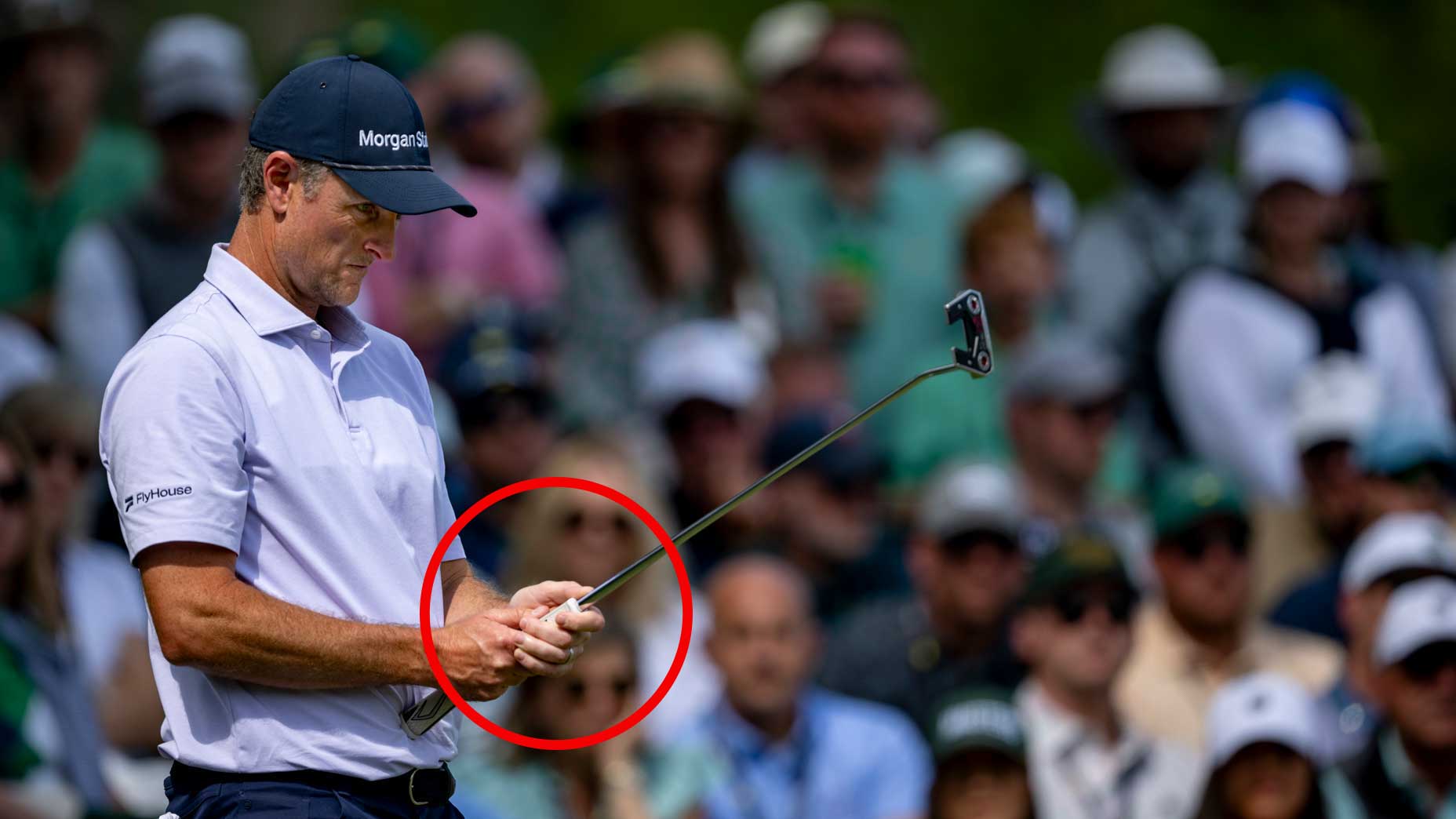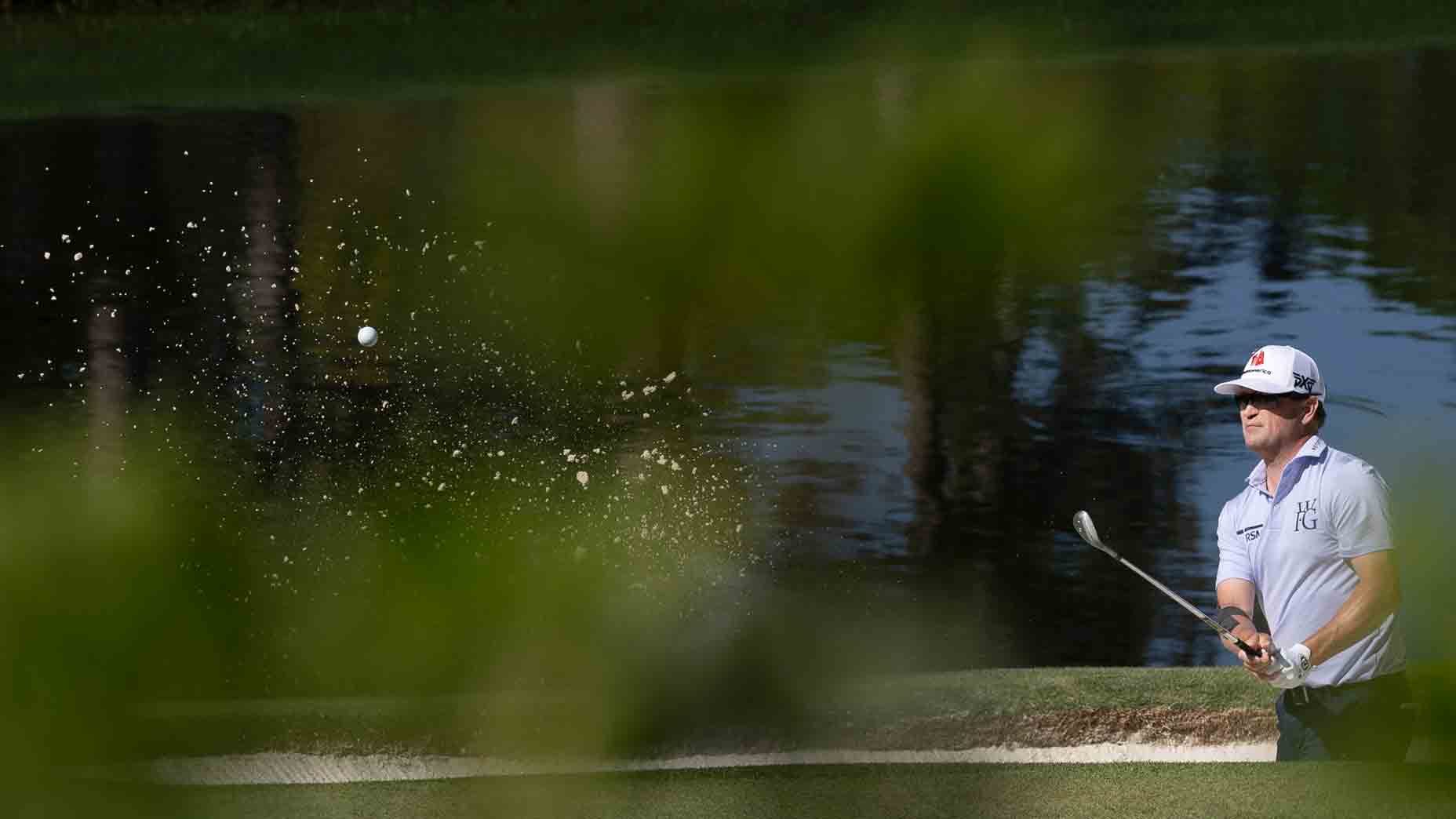The Masters’ most forbidden item is also its secret to world dominance
- Share on Facebook
- Share on Twitter
- Share by Email

Fred Ridley delivered his annual Masters press conference on Wednesday.
Getty Images
AUGUSTA, Ga. — Every year, the sports world journeys to Augusta National for a weeklong exercise in quantum superposition.
Just like Schrodinger’s Cat, the Masters exists in two opposing states simultaneously: at once obsessed with tradition and racing to the forefront of technological advancement. What’s old is new … and both old and new.
Golf’s most unusual tap dance starts in the hips (or perhaps more accurately, the pockets). This week, Augusta National will refuse to allow any of its 150,000-ish patrons to bring their cell phones on property — keeping with a longstanding tradition banning technology on the golf course (including for the membership). At the same time, the club will launch its largest and most expansive content offering ever, including a mobile app feature allowing anyone to watch every shot of tournament week in ultra-high-definition.
If you are a golf fan of a certain age, you might have already witnessed the newest frontier of Masters content: TikTok. The algorithm has undergone a Masters Green blitzkrieg over the last several days, with several prominent influencers — many with few or no ties to golf — sharing personalized gift bags, outfit selections, and Masters merchandise hauls.
Of course, these efforts reflect Augusta National’s earnest commitment to golf evangelism, bringing the mystique and aura of golf’s first major to the masses. But for those witnessing the content in the flesh, it creates a funny dichotomy: About the only place in the world where you cannot see what is happening on the 16th hole at Augusta National this week is … standing on any of the course’s remaining 17 holes.
“The way I look at it is we are using technology to tell the story of who we are, to tell the story of the Masters, to explain to people — particularly younger people — what the Masters is all about and why it matters to the game of golf,” club chairman Fred Ridley said Wednesday. “I don’t see those at all as being inconsistent.”
In his eight years as the tournament chairman, Ridley has stewarded Augusta National’s march toward global dominance with a simple credo: More is more. In a sport increasingly defined by a zero-sum relationship with the outside world, Ridley has festooned the Masters with an array of first-in-class tech advancements and access expansions that serve no obvious bottom line. This week, golf fans will not only watch every shot of the tournament, they will see every shot struck on the range.
The result of those efforts? Augusta National has supercharged its position in the golf world, elevating itself beyond the image of a stodgy club with an exclusionary history into perhaps the sport’s most influential ambassador. When Ridley announced the club would “continue” to support a golf ball rollback on Wednesday, he unilaterally confirmed that it would proceed in pro golf. When he announced the club would continue to invite eligible LIV golfers in 2022, the rest of the majors followed. The Masters logo is no longer just a logo, as anyone who has stepped foot inside the club’s behemoth merchandise center can tell you — it has come to represent something much larger.
“I think everything is better than it was 50 years ago,” Ridley said Wednesday. “But the underpinning values of the club, the notion of respecting tradition and continuing to move forward and improve and innovate while still respecting tradition? That is really what drives us every day.”
Ridley is the physical manifestation of the club’s tightrope. He has opened the floodgates on the Masters’ content efforts and introduced the club’s first women’s competition, the Augusta National Women’s Amateur, but has maintained a vice grip over several longstanding club rules. Phones are still banned, Pimento Cheese sandwiches are still $1.50, and Angel Cabrera is still in the tournament field as a past champion, despite a domestic violence conviction.
Still, the signs of progress are noticeable. Ridley said he could talk for “30 or 40 minutes” about the club’s various charitable efforts and acknowledged the club had lifted a “veil of secrecy” surrounding its philanthropy. Fifty years ago on Thursday — and 28 years after Jackie Robinson — Lee Elder broke the Masters color barrier. On Wednesday morning, Ridley did more than acknowledge that history; he embraced it.
“Jack Nicklaus would ultimately go on to win his fifth green jacket that week, but by then, history of another dimension had been made when Lee hit his first shot as a Masters competitor,” Ridley said. “We never will forget his enduring legacy that made golf a better game for everyone.”
It is fascinating to witness Augusta National — in all its careful intentionality — grapple with the opposing gravitational pulls of the past and future. Beyond the pearly gates really is a place from a bygone era, where the food is cheap, the distractions are few and the golf is great. Outside the gates, the real world screams toward the future at warp speed and maximal digital stimulation — and Augusta National is there, too.
The defining trait of the Masters is having its foot in both of these buckets, even if it sometimes looks clumsy. It would be easier — for Augusta National, for the Masters, and for my communication-starved bosses — for the club to live somewhere nearer to the middle, but it would be nowhere near as satisfying. In some essential way, the Masters would not be the Masters.
On Wednesday morning, Ridley preempted a lengthy discussion about content and influencers and TikTok with a weather report.
“A colder-than-normal January has been conducive to a near-perfect early spring bloom of Azaleas and other flowering ornamentals,” Ridley said. “One of our guests last week referred to the course as a beautiful painting, and I could not agree more.”
It was a statement as welcome at the 89th Masters as the 1st. Somewhere, Schrodinger grinned.
Latest In News

James Colgan
Golf.com Editor
James Colgan is a news and features editor at GOLF, writing stories for the website and magazine. He manages the Hot Mic, GOLF’s media vertical, and utilizes his on-camera experience across the brand’s platforms. Prior to joining GOLF, James graduated from Syracuse University, during which time he was a caddie scholarship recipient (and astute looper) on Long Island, where he is from. He can be reached at james.colgan@golf.com.









